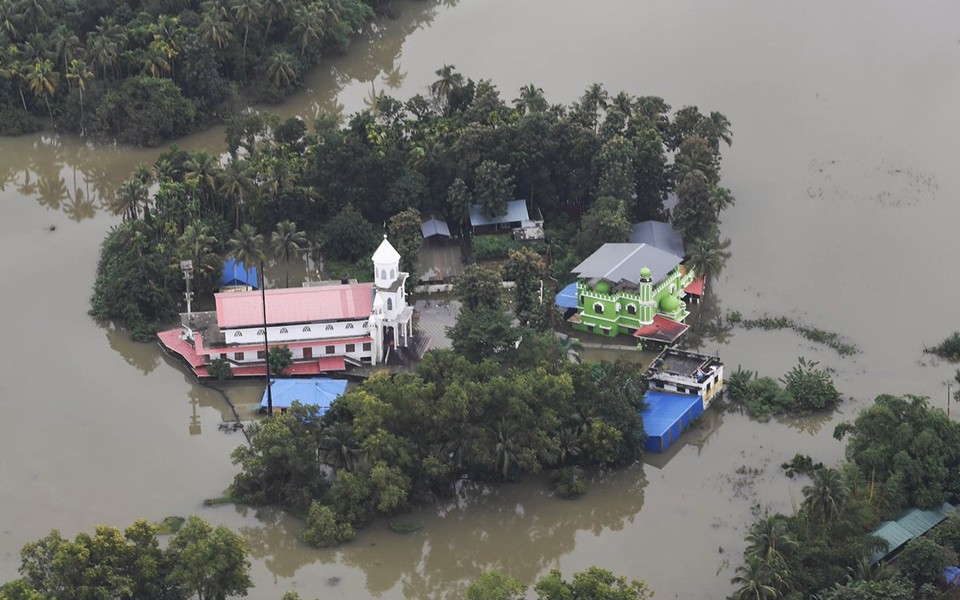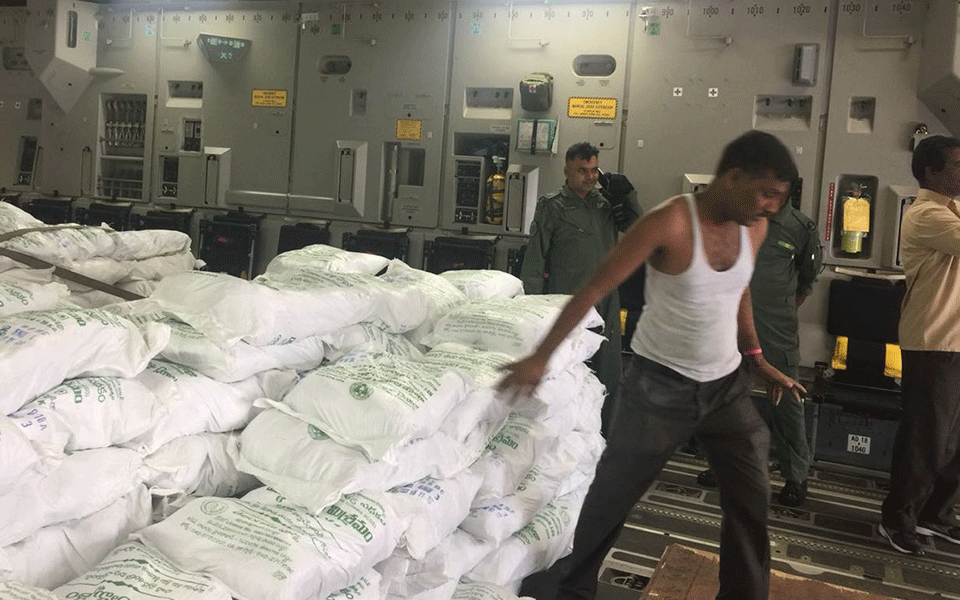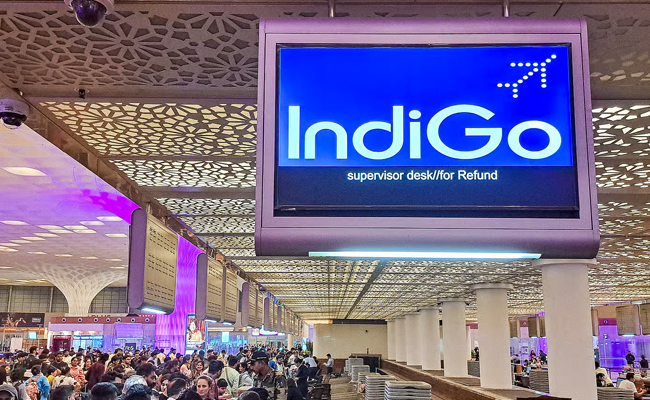New Delhi, Aug 18: As Kerala battles the worst floods in its recent history, many NGOs have come forward to lend their support to ensuring supply of packaged meals and other relief items to the worst affected areas of the state.
Rise Against Hunger India (RAHI), a renowned International NGO, has associated with many NGOs including Arshabharath, Hope Foundation and the Times Foundation to help the families living in the make-shift relief camps.
Not just food, RAHI is also mobilising other important and essential items like hygiene kits, toiletry, soaps, water containers, utensils, bed sheets, blankets, clothing, water purifier and similar products, which can be utilized by survivors in relief camps.
Save the Children India unit too has come forward to help the victims, especially children, in the flood-affected areas. It will be setting up child-friendly spaces, which provide children with important psycho-social well-being through learning and recreation facilities.
"We will do everything to help children get back to school as quickly as possible once it is safe to do so," Bidisha Pillai, CEO, Save the Children, said.
"We are sending our first lot of meal boxes to Wayanad on Sunday. By next week, more material will be sent to Mundalur in Kannur. Our intention is to provide immediate assistance to the affected families, and once the rains subside, help them get back to their normal lives as soon as possible," Dola Mohapatra, Executive Director, RAHI added.


Let the Truth be known. If you read VB and like VB, please be a VB Supporter and Help us deliver the Truth to one and all.
Bengaluru (PTI): The Karnataka government has issued directions to municipal corporations across the state to regulate and prohibit feeding pigeons in public places, citing serious public health concerns.
Deputy Secretary to Government V Lakshmikanth has written to the Urban Development Department requesting it to issue directions to the Greater Bengaluru Authority (GBA) and all municipal corporations to take immediate steps to implement the measures.
In an official note dated December 16 issued by the Health and Family Welfare Department and released to the media on Wednesday, the department said uncontrolled feeding of pigeons in public places has resulted in large congregations of birds, excessive droppings and serious health concerns, particularly respiratory illnesses linked to prolonged exposure to pigeon droppings and feathers such as hypersensitivity pneumonitis and other lung diseases.
ALSO READ: Chinese GPS tracker found on seagull near Karwar Coast
"The commissioner, the Greater Bengaluru Authority and the Commissioners and chief officers of other municipal corporations shall take necessary action to mitigate the causes of dangerous disease spread by pigeon and enforce specified guidelines in their respective jurisdiction," the note said.
According to the department, these include a prohibition on feeding pigeons or causing pigeons to be fed in areas where it may cause nuisance or pose a health hazard to the public. Pigeon feeding shall be permitted only in designated areas in a controlled manner, subject to certain conditions.
"The designated areas may be selected in consultation with stakeholders. The responsibility for upkeep of the designated areas and compliance to the directions shall be taken up by some charitable organisation or an NGO. The feeding in designated areas shall be permitted only for some limited hours in the day," it said.
The note further stated that authorised officers of local authorities shall issue on-the-spot warnings and may impose fines for violation of the order, or lodge complaints to prosecute offenders under Sections 271 (Negligent act likely to spread infection of disease dangerous to life) and 272 (Malignant act likely to spread infection of disease dangerous to life) of the Bharatiya Nyaya Sanhita.
It also directed local authorities to conduct public awareness campaigns, including the display of signboards, banners and digital messages, explaining the health hazards associated with pigeon droppings and feathers, the content of the regulatory directions and penalties for violations, and alternative humane methods of bird conservation that do not endanger public health.





